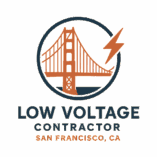The Role of Low Voltage Contractors in San Francisco’s Rapid Tech Growth
Introduction
San Francisco’s tech industry is expanding at an unprecedented pace, with startups, enterprise offices, and co-working spaces transforming the city’s landscape. Behind this growth is a critical yet often overlooked workforce: low voltage contractors. These professionals design, install, and maintain the cabling, networking, and security systems that allow modern businesses to operate efficiently. From structured cabling to advanced surveillance systems, low voltage contractors in San Francisco ensure that tech infrastructure meets the demands of a rapidly evolving urban ecosystem. This article explores their vital role in San Francisco’s tech expansion, the technologies they implement, and the benefits they bring to businesses and residents alike.
Table of Contents
- Understanding Low Voltage Contractors
- Services Provided by Low Voltage Contractors
- 2.1 Structured Cabling and Network Infrastructure
- 2.2 Security and Surveillance Systems
- 2.3 Audio-Visual and Collaboration Solutions
- 2.4 Smart Building Integrations
- Impact on San Francisco’s Tech Industry
- Why Businesses Rely on Professional Low Voltage Contractors
- Common Challenges and How They Are Addressed
- Future Trends in Low Voltage Contracting
- Case Studies: Success Stories in the Bay Area
- Conclusion and Key Takeaways
- FAQs
- References
Understanding Low Voltage Contractors
Low voltage contractors specialize in low voltage installation and systems operating below 50 volts, including data networks, voice communications, security systems, and audiovisual installations. Unlike traditional electrical contractors, they focus on specialized cabling, equipment installation, and system integration. Their work ensures that buildings are technologically ready for the high-speed connectivity and smart systems demanded by modern enterprises.
Services Provided by Low Voltage Contractors
1. Structured Cabling and Network Infrastructure
Structured cabling forms the backbone of any tech-driven business. Low voltage contractors design and install organized cable networks that support high-speed internet, VoIP, and data transfer. Properly installed structured cabling reduces downtime, increases reliability, and ensures scalability for future tech upgrades.
2. Security and Surveillance Systems
Contractors implement comprehensive security solutions, including CCTV, access control, and intrusion detection systems. These systems protect assets, employees, and sensitive information while integrating with smart monitoring platforms for real-time alerts and remote management.
3. Audio-Visual and Collaboration Solutions
Low voltage contractors deploy AV systems for conference rooms, auditoriums, and collaborative workspaces. Video conferencing setups, digital displays, and public address systems enhance communication, improve productivity, and support hybrid work models that are essential in today’s tech sector.
4. Smart Building Integrations
From automated lighting to environmental controls, low voltage contractors enable smart building solutions. Integrating IoT devices with network infrastructure allows businesses to monitor energy consumption, optimize operations, and enhance overall workplace efficiency.
Impact on San Francisco’s Tech Industry
Low voltage contractors play a pivotal role in the city’s tech ecosystem by ensuring robust connectivity, operational efficiency, and security. Startups and tech companies rely on these systems to support high-bandwidth applications, remote collaboration, and data-intensive processes, fueling innovation and productivity.
Why More Residents Are Installing Low Voltage Security Systems is no longer just a trend it’s a necessity. Modern households are recognizing the value of professional low voltage solutions, from surveillance cameras to access control systems, which enhance safety while maintaining seamless integration with home networks. Low voltage contractors ensure that these systems are installed correctly, providing reliable performance, minimal downtime, and long-term protection for both residential and commercial clients.
Why Businesses Rely on Professional Low Voltage Contractors
Professional contractors bring expertise, compliance knowledge, and industry-standard practices to installations. Proper installation minimizes network downtime, enhances security, and ensures systems are scalable and future-proof. Their expertise is crucial for tech startups, data centers, and corporate offices where technological reliability is mission-critical.
Common Challenges and How They Are Addressed
- Complex Building Layouts: Contractors use careful planning and mapping to ensure efficient cable runs and system placement.
- Rapid Technology Changes: Professionals recommend modular systems that can adapt to evolving technologies.
- Integration Across Platforms: Skilled contractors ensure seamless integration of security, networking, and AV systems.
- Regulatory Compliance: Licensed contractors comply with local and federal standards for safety, networking, and communication systems.
Future Trends in Low Voltage Contracting
- AI and Automation: Predictive maintenance and automated monitoring will improve system reliability.
- Cloud-Connected Infrastructure: Increased cloud reliance requires robust network designs.
- IoT Expansion: Greater smart building adoption will expand contractors’ roles in automation and connectivity.
- Sustainable Solutions: Energy-efficient cabling, LED lighting integrations, and renewable power support are becoming industry standards.
Case Studies: Success Stories in the Bay Area
- Startup Hub Deployment: A San Francisco startup office installed structured cabling and VoIP systems, reducing downtime by 40% and enabling seamless hybrid collaboration.
- Smart Campus Integration: A tech incubator integrated low voltage security and AV systems, improving safety, operational efficiency, and tenant satisfaction.
- Corporate Expansion: An enterprise office relied on low voltage contractors to upgrade its network and surveillance, resulting in increased data throughput and reduced security incidents.
Conclusion
Low voltage contractors are indispensable to San Francisco’s rapidly growing tech industry. Their expertise in network infrastructure, security, and smart building integrations ensures businesses remain competitive, secure, and technologically advanced. By investing in professional low voltage solutions, companies can future-proof operations, enhance productivity, and support the city’s evolving tech landscape.
FAQs
Q1: What does a low voltage contractor do?
A: They design, install, and maintain systems like structured cabling, security, and AV solutions operating below 50 volts.
Q2: Why are low voltage systems important for tech companies?
A: They ensure reliable connectivity, security, and infrastructure that supports data-intensive operations and smart building technologies.
Q3: Can startups afford professional low voltage installation?
A: Yes, modular solutions and scalable designs allow startups to implement cost-effective, professional-grade systems.
Q4: How do low voltage contractors handle system upgrades?
A: They design scalable and modular infrastructures that can be upgraded without major downtime.
Q5: Are there certifications for low voltage contractors?
A: Yes, professionals may hold certifications such as BICSI, NICET, or state-specific licenses ensuring quality and compliance.
